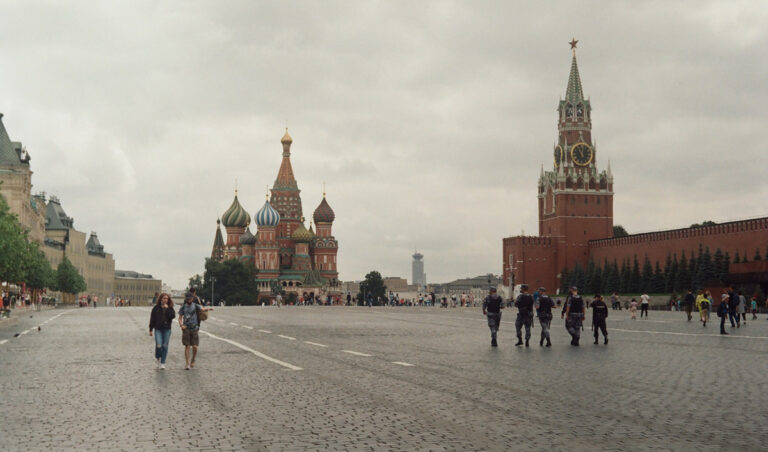Russia is silencing its own people while offering ‘immoral’ humanitarian corridors to Ukrainians
This morning, on Monday 7 March 2022, Russia announced that it will open “new humanitarian corridors” to Ukrainian civilians trapped under its bombardments without food or water, who have been unable to evacuate their wounded following two days of failed ceasefires in the besieged city of Mariupol. But, plot twist, Russia’s defence ministry further revealed that the corridor from Kyiv would lead to Belarus while civilians from Kharkiv would be permitted to go only to Russia. Russia would also mount an airlift to take Ukrainians from Kyiv to Russia, the ministry added.
The move has already been heavily criticised, with a spokesperson for Ukrainian President Volodymyr Zelensky calling the strategy “completely immoral” and stating that Russia is trying to “use people’s suffering to create a television picture,” as initially reported by Reuters.
Meanwhile in Russia on Friday 4 March, citizens were presented with a ban against the promotion of any kind of information that has not been relayed by the government first and foremost. Since the beginning of Russia’s invasion of Ukraine, the former’s officials have said that false information has been spread by enemies such as the US and its Western European allies in an attempt to sow discord among its citizens.
What’s really happening is that, until now, global news media had been reporting honestly on the situation, something that the Kremlin did not appreciate since it never planned to inform its people on exactly where soldiers were sent to die and what for. Instead, Russia has been calling real coverage of the events “fake news,” and is now threatening anyone willing to speak out about such happenings of being sent to prison for up to 15 years. Talk about some 1984-esque censorship and brainwashing, huh?
Russian lawmakers also imposed fines on anyone calling for sanctions against Russia following the invasion of Ukraine. BBC Director General Tim Davie said the new legislation appeared to criminalise the process of independent journalism. “It leaves us no other option than to temporarily suspend the work of all BBC News journalists and their support staff within the Russian Federation while we assess the full implications of this unwelcome development,” he said in a statement.
The Canadian Broadcasting Corporation (CBC)—the country’s public broadcaster—said it had temporarily suspended reporting from the ground in Russia so it could seek clarity on the new law. ABC News also said it would pause broadcasting from the country as it assessed the situation. The Washington Post, Dow Jones and Reuters said they were evaluating the new media law and the situation. You get the idea.
Leading video-sharing app TikTok has now suspended both live-streaming and new content from Russia in response to the country’s ‘fake news’ law.
1/ TikTok is an outlet for creativity and entertainment that can provide a source of relief and human connection during a time of war when people are facing immense tragedy and isolation. However, the safety of our employees and our users remain our highest priority.
— TikTokComms (@TikTokComms) March 6, 2022
TikTok has also begun applying labels to content from some state-controlled media accounts. On the platform, content from outlets such as RT—a Russian state-controlled international television network funded by the tax budget of the Russian government—now includes a label at the bottom of the video that reads “Russia state-controlled media,” with a link to more information.
Russia’s internet censorship agency, Roskomnadzor, announced plans to block access to Facebook around the country on Friday 4 March, in turn shutting it from promoting the free flow of information—while blaming the company’s restrictions on Russian state media. Putin’s new law could have a spiralling impact on the tech industry, pressuring companies to stop operating in the region completely, without the Russian government itself having to actively block any particular social media service.






